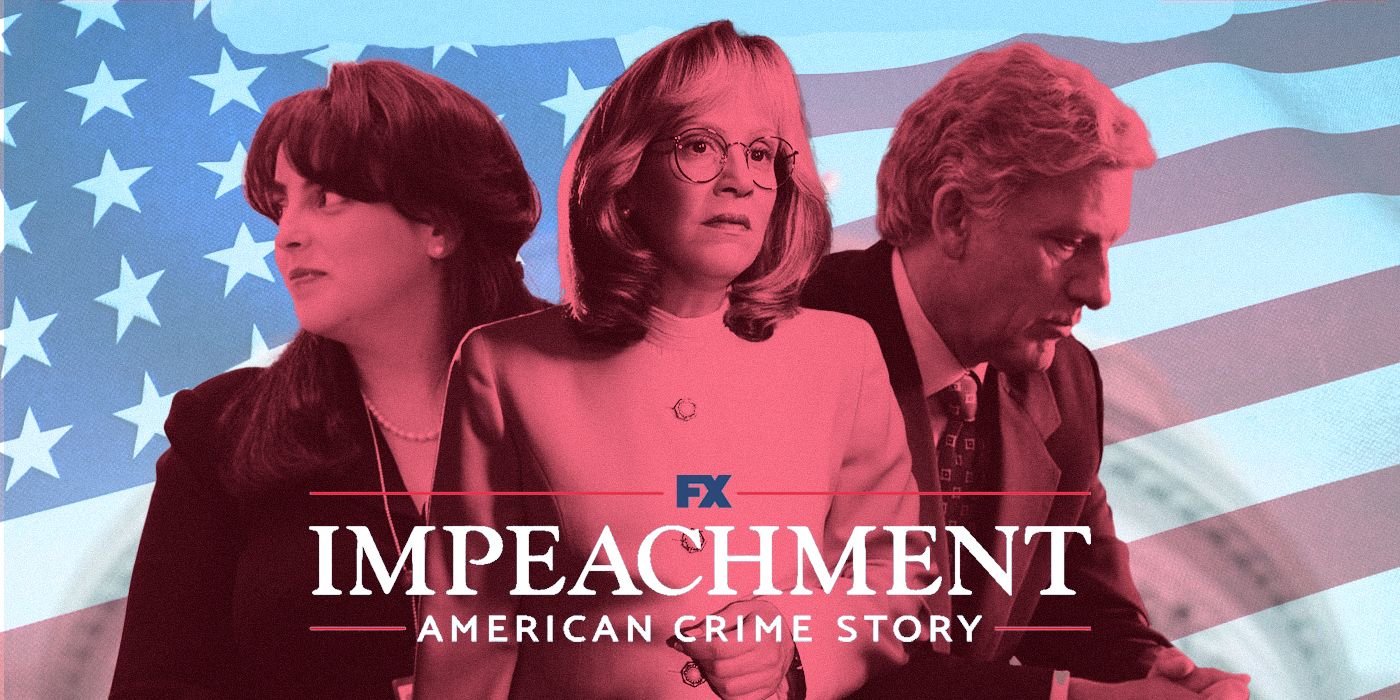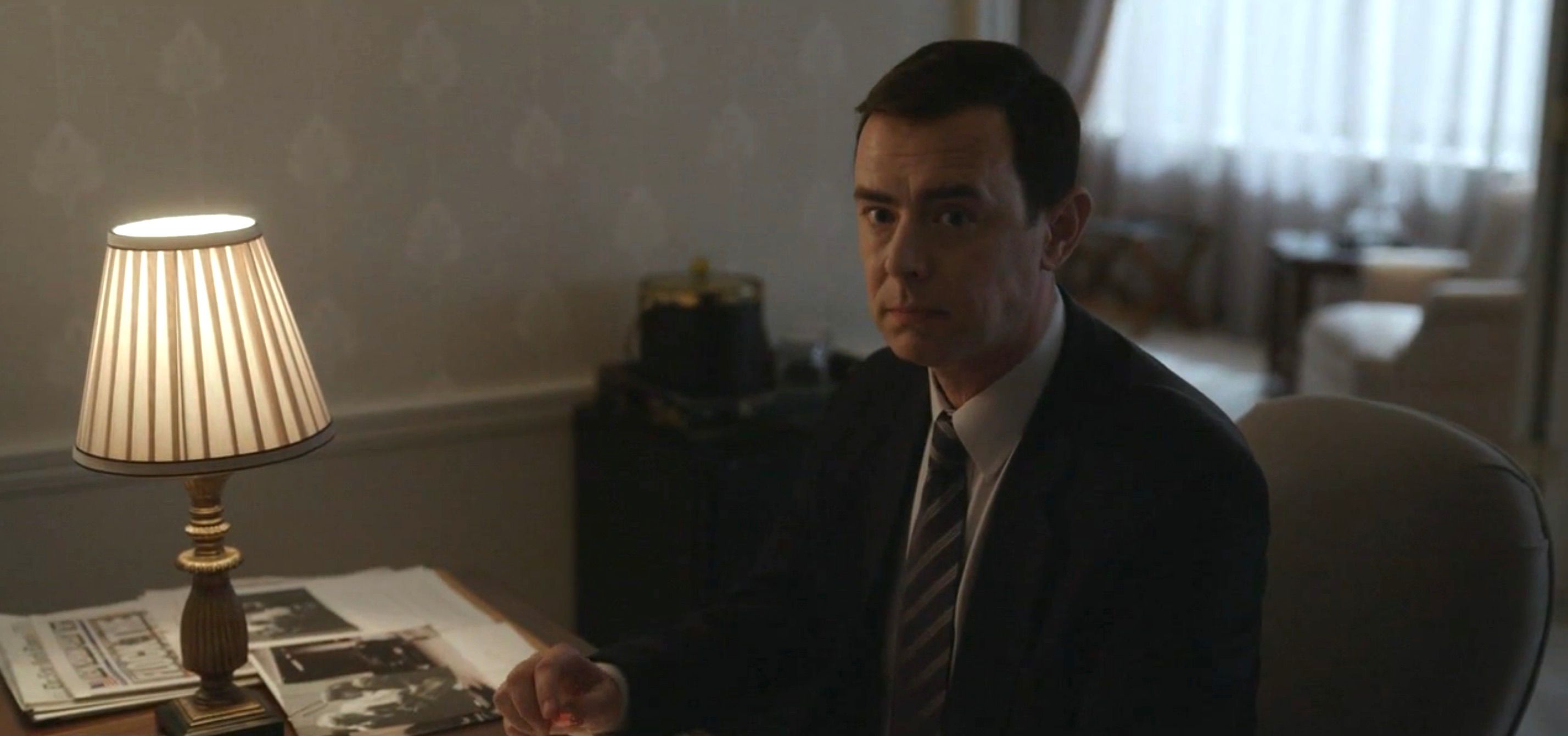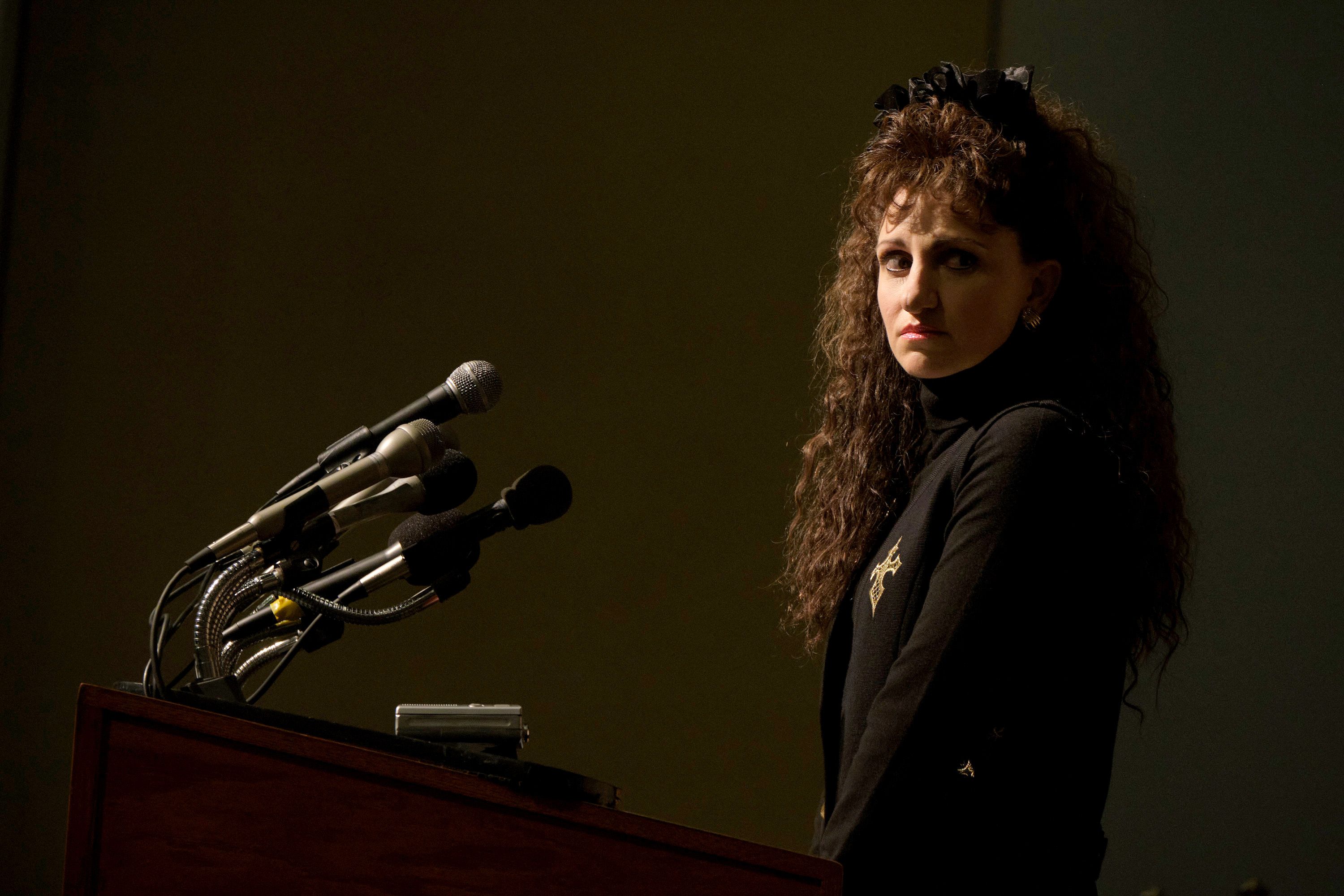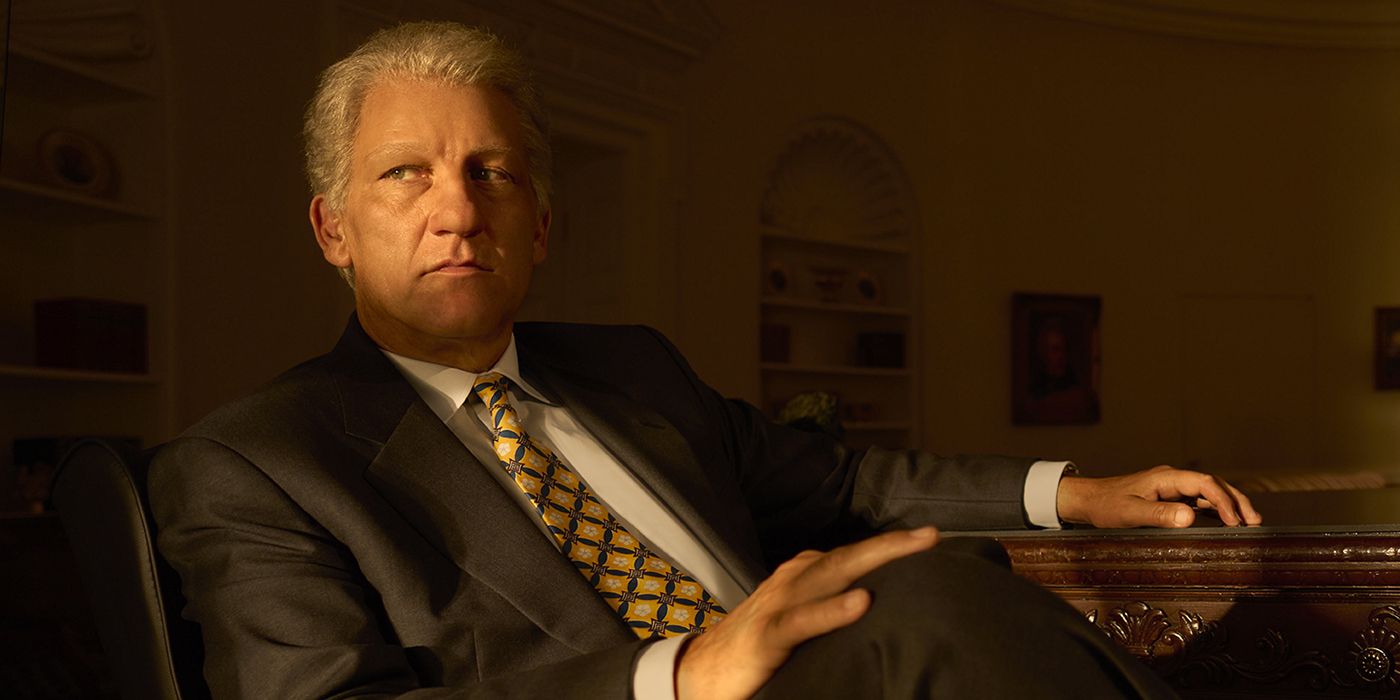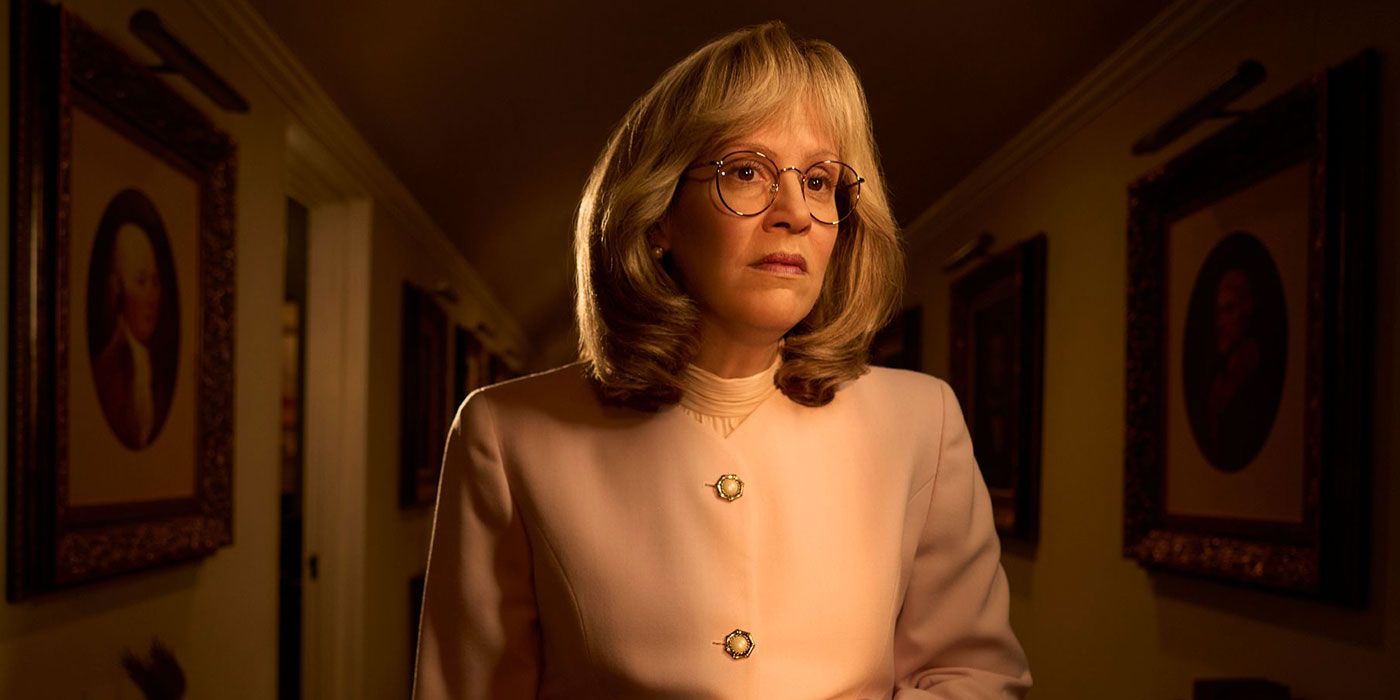FX’s American Crime Story is an anthology series that tells the stories of real, famous American crimes. The third season, Impeachment, garnered anticipation as it was set not only to cover the famous sex scandal between U.S. President Bill Clinton and White House intern, Monica Lewinsky, but to be co-produced by Lewinsky herself.
Impeachment accomplished a harrowing feat in telling a well-known, true story from new and important perspectives. Among the many details that came together to make this season so successful in its storytelling are the powerful performances from the cast. They worked to set the record straight and gave voices to those whose stories have been told widely but were kept silent. This is the ranking of the top five performances from American Crime Story: Impeachment and how these actors’ work amplified the perspectives of the real individuals they portrayed.
5. Colin Hanks as Mike Emmick
Colin Hanks’s portrayal of prosecutor Mike Emmick offered a look at someone both empathetic and on the wrong side of history. Like a tour guide, he led viewers (and Monica) through a claustrophobic, anxiety-inducing bottle episode (Episode 6, "Man Handled") and acts as a kind of spokesperson for those hanging Monica out to dry in spite of themselves. Hanks took what could have been a mostly ignorable role of someone further victimizing an already vulnerable young woman and played it as a comforting figure among villains. As Emmick played “good cop,” Hanks made Emmick’s soft spot for Monica’s dire situation clear and showed how torn he was between two different causes he believed in. While his kindness snuck out throughout his time with Monica, Hanks’s positioning of Emmick as a real person, both sympathetic and cruel, both good and bad, was palpable. This made the moment when Monica turned against him, all but admitting to the grand jury what he’d helped do to her, all the more powerful.
4. Annaleigh Ashford as Paula Jones
Tony Award winner and American Crime Story Season 2 alum Annaleigh Ashford brought heart, comedy, and dimension to another character whose real, complex personality was never revealed by the media. Those who paid any attention to the Clinton-Lewinsky scandal as it played out in real time knew of Paula Jones but didn’t have much, if any, insight into how the scandal affected her. Ashford’s performance fleshed out a woman who was repeatedly, relentlessly taken advantage of and connected viewers to her all-too-relatable plight. She gave her character sweetness, silliness, and naivete that felt hopeful rather than unthinking or sheltered as the characters and world around her seemed to perceive it.
Ashford gave Jones a charm and watchability that earned where the plot took her in the season finale. As Paula Jones suffered the consequences of her media attention, she was forced past her sexual boundaries by posing for Penthouse, desperate for money, in what felt like twisted repayment for speaking up about the first time she found her boundaries crossed. Ashford played this character arc subtly and made it difficult not to hate the characters who forced Jones into the public eye and made her pay for others’ indiscretions.
3. Clive Owen as Bill Clinton
Despite Clive Owen’s mastery of Bill Clinton’s distinct affectation and voice, it took a few episodes for his portrayal of Clinton to get to a place worthy of the “Best Performances” list among heavy hitters. However, over the course of the season, Owen’s tenderness for his character’s inner life and ability to deliver many well-known quotes and sound bytes up to and including, “I did not have sexual relations with that woman” to a T helped to weave the reality viewers are familiar with together with new behind-the-scenes details. Owen offered care and subtlety to the more vulnerable, private moments of Clinton’s downfall without compromising the calm, simple, composed president who dominated the media in the ‘90s. This take on Clinton helped to further substantiate the story being told: viewers didn’t see a sneak peek into an overly sympathetic puppeteer behind a public persona. Owen gave viewers the Bill Clinton everyone knows in the context of the moments no one saw, making the whole story feel like a puzzle to which we were progressively getting more pieces.
2. Beanie Feldstein as Monica Lewinsky
As Beanie Feldstein takes on new roles on the big screen and Broadway alike, Impeachment transformed America’s sweetheart into America’s one-time sacrificial lamb. Feldstein’s innate likability and charisma made it easy to look at Monica Lewinsky through a lens that is very different than that of the late ‘90s media.
Feldstein played Monica with naturalism and emotional intricacy that made her feel not only real, but like someone you know; like your friend. Feldstein gave Monica the room to be relatable – finally taking a story about Monica Lewinsky and actually letting Monica Lewinsky be a part of it. She had a way of seeming small in rooms full of men towering over her, honest and vulnerable when the walls were closing in on her and full of understandable intentions even when she was spiraling.
In Episode 9, "The Grand Jury," Lewinsky testifies before the grand jury, which is comprised of folks full of preconceived notions about Lewinsky’s feelings and intentions. As she asks the jury to call her “Monica,” makes jokes, and offers overwhelming candidness about her personal life, Monica softens the jury’s opinions and brings them to her side without ever seeming to manipulate them. This mirrors the effect Feldstein’s performance has on viewers: challenging what they know about Monica Lewinsky, allowing them to get to know her, and fighting against betrayal, manipulation, and force with openness and authenticity.
1. Sarah Paulson as Linda Tripp
Ever the chameleon, Sarah Paulson outdid herself in her transformation into Linda Tripp. While much of Impeachment surprisingly followed Linda and opted to tell major chunks of the story from her perspective, almost any other actor would not have elevated this character to the level that Paulson did.
She walked a tightrope between somber solemnity and comic relief, making a hated public figure a likable and very watchable character without compromising the truth. For those who knew of Linda Tripp and those who didn’t, Paulson’s performance was rich with depth, empathy, and surprising comedic likability for the infamous whistleblower. She managed to look, speak, walk, and even stand so much like Linda Tripp and so unlike herself, that it is easy to suspend disbelief and throw oneself into the story, believing this really is Linda Tripp eating TV dinners at home, talking to her children, and even secretly recording her friend.
Paulson’s deep and thoughtful understanding of Linda went far beyond her gait and the way she flipped her hair. Linda’s reasoning, her past, her thoughts and feelings, were all offered up freely. While the reality of Linda’s harsh betrayal of her friend was even clearer than it was in the ‘98 headlines, Paulson’s performance made it nearly impossible to view Linda Tripp as “bad.” Linda was fighting for what she thought was right. She was plagued by her need for validation, her bullied past, and her extramarital-affair-induced childhood trauma. And, just as misogyny plagued every other woman in this story, Linda Tripp was no exception. With these details supplementing Tripp’s actions, it gets harder and harder to think of her as a totally irredeemable villain. In an interview with Elle, Paulson said of Linda, “This is a real woman who did a hideous thing, who I ultimately think was not a hideous person. [Taking the role] wasn't about [giving her] redemption, but about the opportunity I was given to explore the psychology of a woman who did something I think is very hard for all of us to understand. [sic]” But, beyond just taking the time to understand this, Paulson radiates it and embodies it, all but forcing viewers to understand it, too. She digs into the psyche of someone who did something terrible and became nothing but vilified and allows viewers to feel like they finally really know her, and in that way, we can finally really know the true story.

